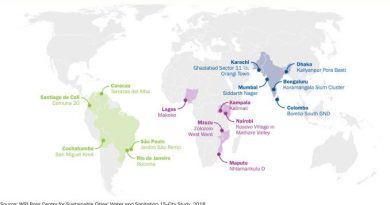After Maharashtra bans plastic, Glass makers step in

The decision of the Maharastra government via Maharashtra Plastic and Thermocol Products (Manufacture, Usage, Sale, Transport, Handling and Storage) Notification, 2018 on March 23 has been hailed by environmentalists and the green lobby in no uncertain terms. Many of them have called it path breaking and plaudits have been showered on the Devendra Fadnavis government for showing real spine in doing something concrete on the environment protection front. Among other things, the new notification has put a ban on all kinds of plastic packaging including the food and beverages. The notification bans the use of PET bottles for quantities below 500ml , besides a more comprehensive ban on plastic packaging below 50 microns thickness, targeted primarily at milk pouches. As reported earlier in Iamrenew, the ban also has a provision for a refundable security deposit for bottles as well as plastic packaging. Taking the March 23rd date as the record date, consumers and trade presumably have till April 23 to clean up their old stocks, before penal provisions of the ban take effect.
Quite predictably, the plastic manufacturers lobby and even some manufacturing bodies are protesting the move (former quite vehemently since it is a matter of survival for them while latter in a murmuring note). Those in the food and especially beverage business are upset with the prospect of an extremely cost effective packaging tool slipping out of their hands. The move, however, has warmed the cockles of the heart of one specific section of stakeholders which in the recent years have been losing their prominence to the plastic packaging – the glass manufacturers. Iamrenew has learnt that a leading association of glass manufacturers has approached the Maharashtra government with a formal note submitted to the Chief Minister assuring him of all support in case one of the leading economic states in the country faces any serious problem on product packaging front due to its recent stern decision.
“ Before plastic packaging became a favourite even for the beverage manufacturers in the country, container glass (used for juices, milk, liquor, ketchups, etc) was much in vogue. And it is no secret to anybody that these glasses are environment friendly. Indian glass manufacturing has quite a scale and if there is any packaging issue in Maharastra which is a leading consumption state in the country, we can pitch in with more production. This is what has been conveyed to the state government which has made a laudatory move,” says a senior official of the association. The galloping growth trajectory of the plastic bottle segment mainly used for consumer specific product packaging at over 20 percent CAGR in the recent years (estimated to be about Rs 16,000 crore worth of annual business) has made the going difficult for glass manufacturers. Prima facie, the availability of the required volume of container glass for packaging solutions seems to be an issue given the overwhelming dominance of plastic bottles. “Volume could be an issue. But eventually given the growing awareness on hazardous impact of the plastic in all forms including packaging, a viable solution has to evolve. And here good old glass bottle is a viable solution. To assist Maharastra in case there is a crisis, the good news is: the state itself has some noted glass manufacturing hubs like Nasik and Nagpur. Country’s biggest glass manufacturing hub, of course, is the neighbouring state Gujarat from where resources can be collectively pooled in,” adds the official.
The glass manufacturers obviously are sensing a chance to regain their lost ground vis-à-vis plastic manufacturers. But the moot point is : given the three times price differential (as per an industry estimate) between glass and plastic bottles, will manufacturers of products look at them as a viable alternative? In the wake of Maharashtra government’s decision, this debate is bound to get more pronounced and it would be interesting to see if the glass industry’s offer finds willing buyers in the marketplace.
Published on: Apr 3, 2018 ![]()




